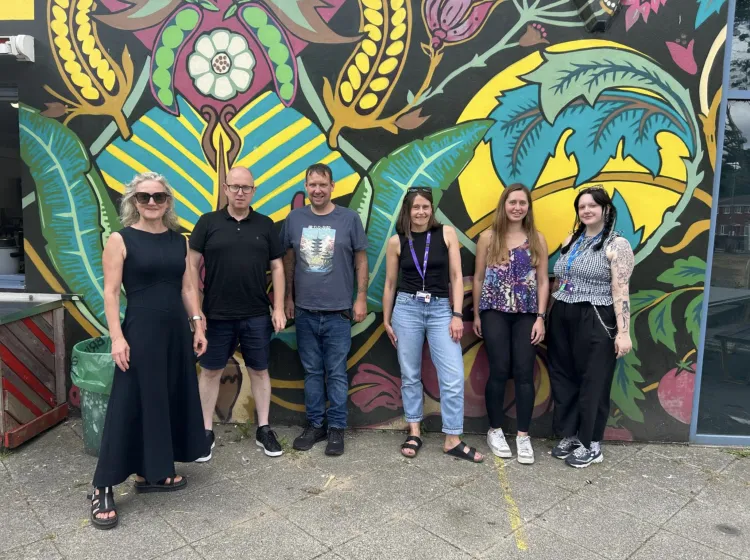
DHI’s Criminal Justice Service in Bristol, Bath & North East Somerset and South Gloucestershire supports people serving non-custodial sentences to rehabilitate and lead independent, healthy lives. The team works closely with probation services to ensure that service users receive the support they need to turn their lives around.
As part of the service’s recruitment process, service users Alison, Ken and Seb recently took part in interviews for two new mental health practitioners, demonstrating the importance DHI places on empowering clients to shape the services they use.
Ken said that interviewing the candidates gave him a chance to give back to the service that had supported him. “It’s also an opportunity to gain experience and learn something new,” he added.
Rachel Barnes, DHI’s Criminal Justice and Young People’s Service Manager, agreed: “Not only does DHI benefit from the lived experience of service users, but clients also benefit by having their voices heard, which boosts self-esteem and confidence.”
“I’m really grateful for the support my practitioner gave me to help process the grief of losing my dad,” said Seb, who is now interested in volunteering with community projects to help others. “Talking about it helped me make a fresh start and turn my life around. Now I want to help recruit someone who’ll do the same for others. I’m looking for a candidate who doesn’t stigmatise people with a history of offending and who believes that change is possible.”
DHI delivers the Mental Health Treatment Requirement as part of Integrated Non-Custodial Services. According to Government figures, the adult male prison estate had an occupancy rate as high as 99.7% between October 2022 and August 2024. This has led to a rise in non-custodial services and referrals to DHI’s Criminal Justice Service.
Olivia Prentice, INCS MHTR Practitioner, said: “It’s so important that service users are part of the recruitment process. They’ve experienced the service first-hand, so they know what works well and what doesn’t. Having the opportunity to voice that is what drives meaningful change and improvement.”
In addition to recruitment, service user feedback has led to other meaningful changes. “For example, we now offer MHTR appointments on the same day as probation officer meetings,” said Olivia. “This means service users don’t have to pay for bus transport on separate days.”
Get news from Developing Health & Independence in your inbox. See our privacy policy.